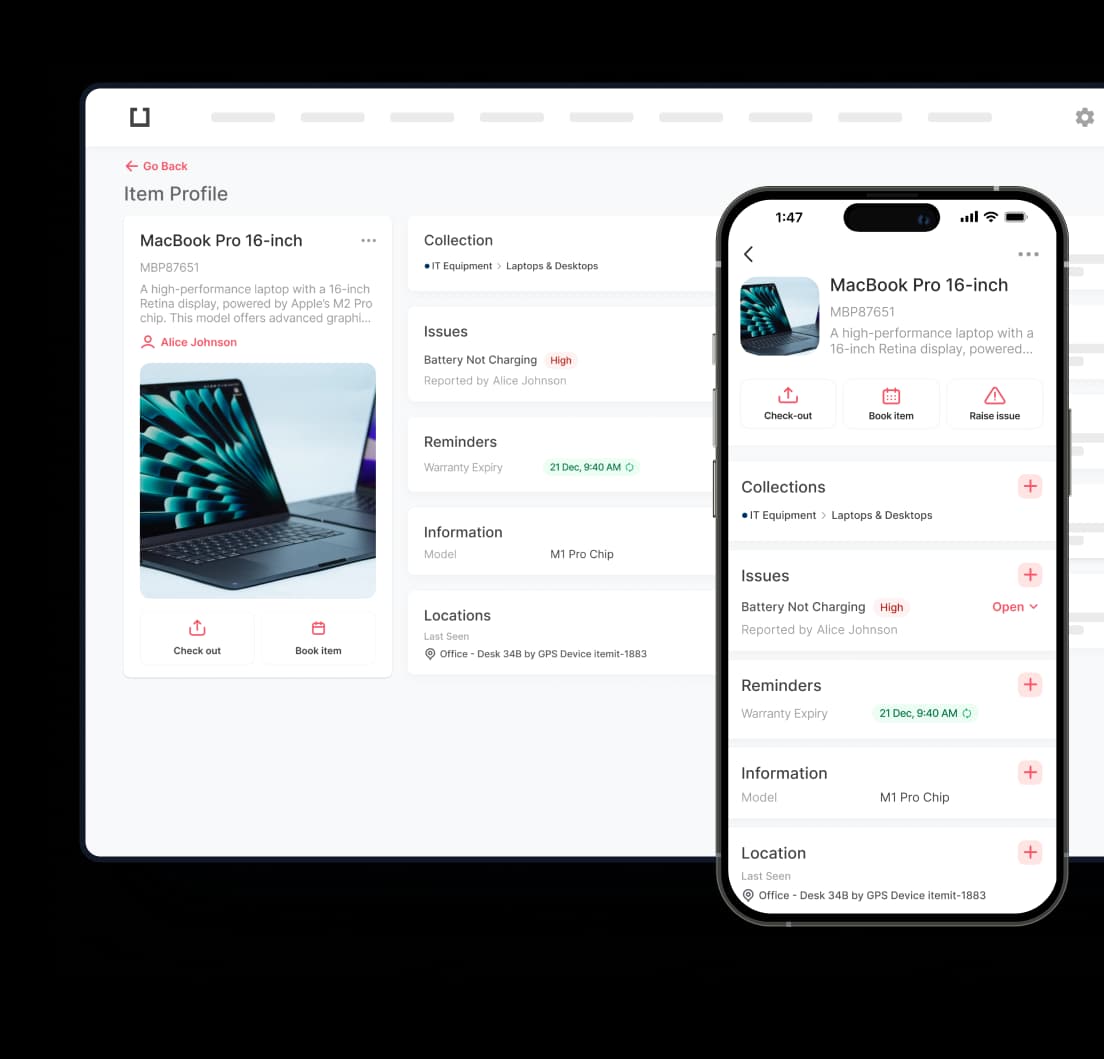An asset register is an essential tool for all businesses. Effectively, an asset register is where you'll log all of your business' critical tools and equipment.
Asset registers can be customised, therefore, as you will be able to create a fixed asset register, an IT asset register and more. Asset registers can also be specific to your job or industry, so you will be able to create a school asset register if you're in education, for example.
So, how does having an asset register save you money?

Accountability & Transparency
A record of which assets you own gives you more accountability and visibility over your asset-level operations. This is as you'll be able to see what you own, where it is, and who is responsible for an asset at a glance.
Seeing an asset record helps that asset come to life a bit more, meaning accountability will increase. Instead of just being "just another tool" it is something unique, accounted for, and different to the other tools.
Because of this, not only does asset responsibility increase with an asset register, but the likelihood of misplacing or purchasing duplicate assets decreases, as visible asset records allow you to account for what you do and don't own.
Automating With Asset Tracking Software
You can automate the benefits of an asset register by using asset tracking software. With asset tracking software, you can add all of your assets as unique profiles and tag them using asset tags.
Then, once your assets are tagged, every time you scan an asset's tag the corresponding profile will open, ready for edits. Therefore, if an asset has an issue, you need only scan the tag and report the issue to update the records of that asset.
Every time you scan an asset's tag, the last seen location and the user who scanned the tag also gets logged, giving you a tidy audit trail of asset interactions.
These time-saving benefits mean that you can reach the potential of an asset register faster and that these benefits are more fluid. These time-saving benefits also mean you have more time to fulfil other duties.
Monitoring And Updating Your Asset Register
After this, you can monitor and update your asset register. As asset tracking software allows you to track assets onsite and remotely using an asset tracking app and web portal, you can ensure that everything is running smoothly.
The shareability and ease of use of asset management software save you money as it saves you time and keeps your asset records more accurate.
For example, as auditing assets is a simple case of scanning their tags when you use asset management software, your asset register is not only more accurate (as you have completed a physical action), it is also maintained more efficiently.
Ultimately, this ease of management means that asset tracking software will help you with multiple operations, including IT asset management and fixed asset management processes. This is as you can customise and separate asset records with ease. Then, the tracking side of things is simple whether it's a laptop or a piece of furniture.
Saving Time & Money With Asset Register Software
Asset register software is essential as it allows you to maintain accurate asset records. These records you can then use to avoid certain risks, including the risk of ghost and zombie assets, duplicate purchases and asset losses.
Using the best asset register software means that you get more control over your assets and can see how they're behaving more clearly. These processes are quick, simple and effective.
To find out more about how itemit's asset register software can help your business, you can contact the team at team@itemit.com. You can also fill in the form below to start your 14-day free trial.





